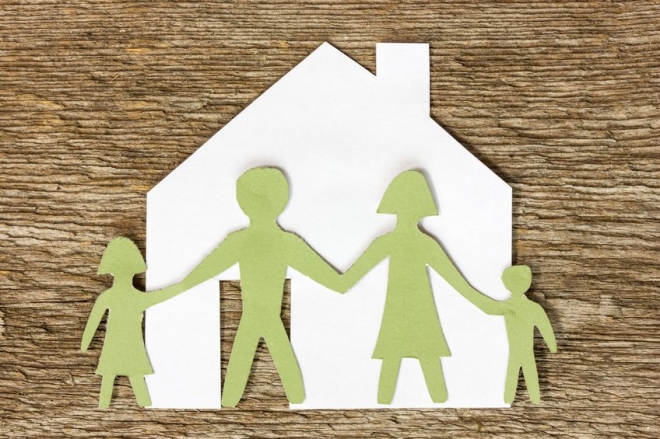What Parents Need To Know About Addiction In Teens
Understanding Risks And Navigating Addiction Recovery In Teens

Adolescence is a period of immense change—physically, emotionally, and socially. While this time can be exciting for teens, it also presents significant challenges. One such challenge is the vulnerability to addiction. Understanding addiction in teens, its signs, and how to navigate it is crucial for parents.
Understanding Teen Addiction
Teen addiction refers to the compulsive and uncontrollable use of substances or engagement in behaviors despite negative consequences. This can include drugs, alcohol, technology, video games, or even gambling. Teen brains are still developing, making them more susceptible to the addictive properties of these substances and activities.
Importance of Parental Awareness and Involvement
Early parental intervention is critical in addressing teen addiction. Parents play a vital role in recognizing the signs, creating a supportive environment, and guiding their teens toward recovery.
Recognizing Early Signs of Addiction
Teenage addiction doesn’t always manifest in dramatic ways. Recognizing subtle changes can be crucial for early intervention. Here are some signs to watch for:
Changes in Behavior, Mood, and Academic Performance
● Behavior: increased irritability, secretiveness, lying, neglecting responsibilities, stealing money, changes in sleep patterns (sleeping excessively or difficulty sleeping)
● Mood: depression, anxiety, mood swings, social withdrawal, loss of interest in previously enjoyed activities
● Academics: declining grades, loss of interest in school, skipping classes, difficulty concentrating
Social Withdrawal and Changes in Friend Groups
● Teenagers may isolate themselves from family and friends who don’t participate in the addictive behavior.
● They may develop new friend groups associated with their addiction.
Physical Signs of Substance Abuse
● Bloodshot eyes, dilated pupils, changes in appetite or weight, tremors, poor coordination, slurred speech, and changes in hygiene.
Risk Factors and Warning Signs
Several factors can increase a teen’s risk of addiction. It’s important to understand these risk factors and be extra vigilant when they are present.
Identification of Risk Factors
● Genetics: A family history of addiction increases a teenager’s risk.
● Environment: Chaotic or stressful home environments, childhood trauma, or a lack of parental supervision can contribute to addiction.
● Peer pressure: Friends who use substances or engage in addictive behaviors can significantly influence teenagers.
Warning Signs Parents Should Look Out For
● Changes in Behavior: As mentioned previously, watch for unusual secretive behavior, significant changes in sleep patterns, and a decline in overall motivation.
● Mood Swings: Erratic mood swings, sudden shifts from excitement to withdrawal, or increased irritability can be signs of underlying problems.
● Declining Academic Performance: Previously good grades dropping off, skipping classes, or a general lack of interest in schoolwork are red flags.
● Loss of Interest: Teenagers suddenly losing interest in previously enjoyed activities, hobbies, or sports could be an attempt to hide their addiction.
Communication and Support Strategies
Communication is vital to addressing teen addiction. Here are some tips to create a supportive and non-judgmental environment at home:
Importance of Open and Honest Communication
● Start a Conversation: Initiate a calm and open conversation without accusations. Express your concern for their well-being.
● Active Listening: Listen to their perspective without judgment. Acknowledge their feelings and understand why they might be engaging in these activities.
● Emphasize Help, Not Punishment: Addiction is a disease, not a moral failing. Focus on offering support and guidance, not punishment.
Tips for Creating a Supportive and Non-Judgemental Environment
● Set Clear Rules and Boundaries: Establish clear expectations regarding substance use and appropriate behavior.
● Maintain Open Communication: Encourage honest and open communication. Let your teen know they can talk to you about anything without judgment.
● Focus on Positive Reinforcement: Acknowledge and reward positive behavior instead of solely focusing on what they’re doing wrong.
● Create a Strong Support System: Encourage healthy relationships with friends, family members, and mentors who can provide positive influences.
Seeking Professional Help
If you suspect your teen is struggling with addiction, don’t hesitate to seek professional addiction treatment help. Early intervention can significantly increase the chances of a successful recovery.
Importance of Early Intervention and Treatment
The sooner addiction is addressed, the better the chances of successful treatment and recovery. Early intervention minimizes long-term damage and allows for the development of healthier coping mechanisms.
Connecting with Mental Health Professionals and Addiction Specialists
● Mental Health Professionals: Licensed therapists can provide a safe space for your teen to express their struggles and develop healthy coping mechanisms.
● Addiction Specialists: Addiction specialists offer specialized treatment plans tailored to the specific type of addiction.
Seeking Professional Help (continued)
Support Groups and Resources for Parents of Teens with Addiction
Support Groups
Connecting with other parents who have faced similar challenges can be invaluable. Support groups provide a space to share experiences, find encouragement, and gain valuable insights from others who understand.
Treatment Centers
Treatment options are available, from outpatient therapy to inpatient rehabilitation programs. Consider your teen’s needs and severity of addiction when choosing a treatment center.
Online Resources
Online resources offer a wealth of information on teen addiction, treatment options, and support groups. Look for reputable websites like the National Institute on Drug Abuse (https://www.nih.gov/about-nih/what-we-do/nih-almanac/national-institute-drug-abuse-nida) or the National Council on Alcoholism and Drug Dependence (https://recovered.org/).
Here are some additional points to consider when seeking professional help:
● Insurance: Check with your insurance provider to understand your coverage for mental health and addiction treatment.
● Family Therapy: Family therapy can be beneficial in addressing the underlying family dynamics that may have contributed to the addiction.
● Self-Care for Parents: Dealing with a teen’s addiction can be emotionally draining. Prioritize your well-being to support your teen during this challenging time better. Consider joining a support group for parents or seeking individual therapy.
Conclusion
Navigating teen addiction can be a difficult journey for parents. However, early recognition, open communication, and professional support can make a significant difference. Remember, your teen is not alone in this struggle.
By providing a loving and supportive environment and seeking professional help when needed, you can empower your teen to overcome addiction and build a healthy future.
Additional Resources
● The National Parent Helpline: 1-855-4A PARENT (1-855-427-2736)
● Substance Abuse and Mental Health Services Administration (SAMHSA) National Helpline: 1-800-662-HELP (4357)
Remember:
● Early intervention is crucial.
● You are not alone.
● There is hope for a recovery.
Here’s how you can help a family member struggling with addiction.





